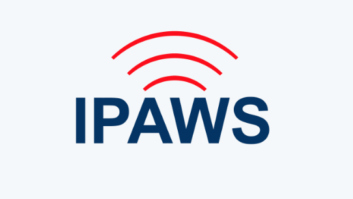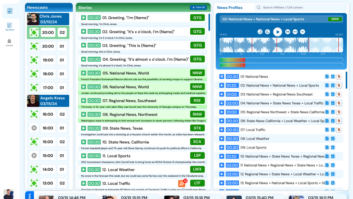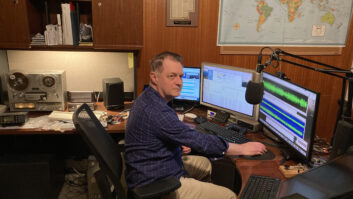
When three radio advocacy groups took a stand and objected to nearly 1,000 applications from full-power stations seeking to extend their coverage with repeater stations, industry reactions were a mix — with the seeming understanding and sympathy on one side and frustrated and incensed on the other.
Radio World is speaking with concerned stakeholders on the action taken by the three groups (which includes the Center for International Media Action, Common Frequency and the Prometheus Radio Project) to get their take on the issue.
In the first Q&A in this series, Radio World spoke with Steve Moravec of consultancy Phoenix Media Group about the potential benefits and downsides of a wide-reaching filing such as this one.
Radio World: What is your overall assessment of the filing submitted by Prometheus, Common Frequency and the Center for International Media Action?
Steve Moravec: Simply stated, ill-timed. While we have empathy for some of their arguments, the coalition had plenty of opportunity to raise their objections prior the opening of either FCC Window 3 or Window 4. Stations with translator applications on file were caught in their collective net and rightfully feel trapped.
Radio World: Were you surprised to see a blanket informal objection of this type? It seems to be covering many different types of translators.
Moravec: Appalled rather than surprised. We all realize the challenges of a decreasing supply of spectrum for an increasing variety of uses. But working together would accomplish more than throwing kegs of nails on the spectrum highway and blowing all the tires on the radio bus. After all, we are all broadcasters.
[Read: LPFM Advocates File Objections to Nearly 1,000 Applications]
Radio World: What’s the benefit of a filing like this: Creating awareness of the situation? Forcing an accounting of the FCC? Something else?
Moravec: Again simply stated, this was clumsily done. The coalition blew up the ship and the life boats too. We personally have no animus toward the LPFM community as their micro services do provide small platforms for voices needing to be heard. Work on your underwriting, not messing with the radio industry.
Radio World: One advocacy group said that while they appreciated the spirit of the filing, it went too far by impinging small mom-and-pop stations too. What is your take?
Moravec: Mom and pop get sucker punched again. Our clients filed their apps in good faith and not only want the benefits a translator can provide, they need that help, too. More than a few want to be on the air for the fall 2018 sports season, which is now threatened.
LPFMs don’t seem to get that every little electronic gizmo often takes a bite out of the signal quality of senior band stations, especially at night. Some of those folks ought to have a try at a lower-power AM station with a handful of watts at night for a year. The destructive level of the noise floor is deplorable — both day and night.
Radio World: From your experience with translators and the processes of the FCC, do you think the groups have raised a valid point about the Local Community Radio Act being violated?
Moravec: There are too many mouths to feed and too little spectrum left in the pot. In some larger markets there is nothing viable left; our home Minneapolis-Saint Paul for example.
Radio World: Are there any other thoughts you’d like to share about how your clients may be affected? Or is there anything else the industry should be aware of?
Moravec: We are very concerned about the challenges to the C Band as they unfold. Register your dishes now!












